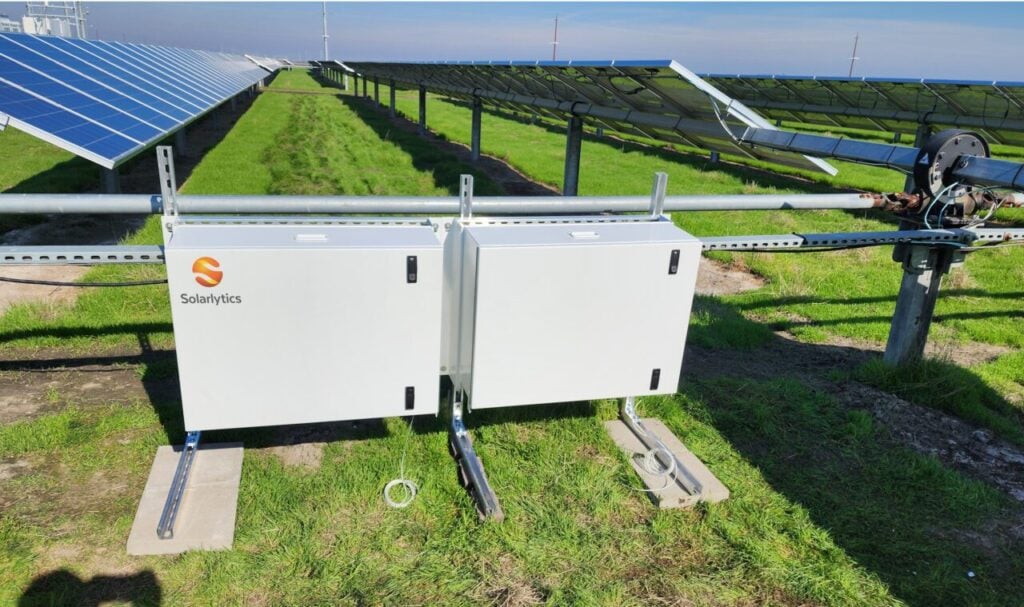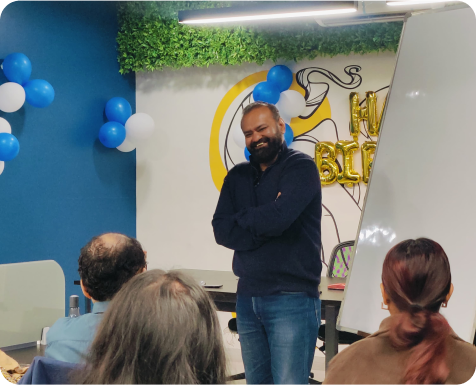- October 7, 2025
- Blog & Newsletters
- Comments : 0
ESG and Green Manufacturing: Central India’s Next Billion-Dollar Opportunity
Introduction
A fundamental shift is reshaping the global economic landscape, and its tremors are being felt right here in the industrial heartland of Central India. The conversation is no longer just about profit margins and market share; it’s about purpose, sustainability, and long-term impact. This new paradigm, driven by Environmental, Social, and Governance (ESG) principles, is fueling one of the most significant entrepreneurial opportunities of our time: the rise of Green Tech startups. For founders in Indore, Bhopal, Jabalpur, and Gwalior, this isn’t a distant trend—it’s a clear and present pathway to building resilient, high-growth ventures. As investors prioritize sustainability and regulations tighten, the demand for innovative solutions in clean energy, waste management, and sustainable manufacturing is exploding, creating a fertile ground for the next generation of industry leaders.

What’s Happening: The Data-Backed Green Wave
India is aggressively pivoting towards a sustainable future, backed by robust government policies and a surge in investor interest. The nation has set an ambitious target of achieving 500 GW of non-fossil fuel energy capacity by 2030, a goal that is unlocking immense capital and innovation. The cleantech sector is now projected to be one of the fastest-growing segments of the Indian economy. This growth is not speculative; it’s supported by concrete initiatives that are creating tangible opportunities for Green Tech startups. For instance, the National Green Hydrogen Mission has been launched with an outlay of over ₹19,700 crore to establish India as a global manufacturing hub for this clean fuel source. Similarly, the Production-Linked Incentive (PLI) scheme for high-efficiency solar PV modules and advanced chemistry cell batteries is galvanizing domestic manufacturing, reducing import dependency, and creating a secure supply chain for the green economy. This policy-driven momentum is attracting significant venture capital, with investors increasingly viewing ESG-compliant businesses not just as ethically sound, but as financially superior long-term investments.
Why It Matters: A Paradigm Shift for Founders, Investors, and Mentors
The rise of ESG and green manufacturing is more than an industrial trend; it’s a fundamental rewiring of business priorities. For founders, it opens up a blue ocean of opportunities. Startups can now build entire business models around solving critical environmental challenges, from developing biodegradable packaging and creating waste-to-wealth solutions to designing energy-efficient industrial automation. This shift allows entrepreneurs to attract premium talent, build strong brand loyalty, and command higher valuations.
For investors, ESG criteria have become a critical tool for risk management and identifying resilient companies. Businesses that ignore their environmental footprint face regulatory penalties, supply chain disruptions, and reputational damage. Conversely, startups that embed sustainability into their core operations are better positioned for long-term growth and are attracting a flood of capital from impact funds and mainstream VCs alike. For mentors within the TiE network, this presents a new mandate: to guide aspiring entrepreneurs not just in scaling their businesses, but in building them sustainably. Mentorship must now encompass navigating complex environmental regulations, accessing green financing, and building circular economy principles into product design from day one.

How Startups Can Respond: Actionable Insights for Central India
Entrepreneurs in Madhya Pradesh are uniquely positioned to capitalize on this green wave, leveraging the region’s strong manufacturing and agricultural base. Here’s how:
- Embrace the Circular Economy: Instead of the traditional ‘take-make-dispose’ model, startups can build businesses around recycling, refurbishing, and reusing materials. This is especially relevant for the industrial hubs around Indore and Pithampur, where manufacturing waste can be transformed into valuable raw materials.
- Innovate in AgriTech: With a vast agricultural landscape, there is a huge opportunity for startups to develop solutions that promote sustainable farming. This includes solar-powered irrigation systems, precision agriculture tools to reduce water and fertilizer use, and creating bio-fuels from agricultural residue.
- Build for the EV Ecosystem: The electric vehicle revolution is here. While vehicle manufacturing is capital-intensive, immense opportunities exist in building out the support ecosystem: EV charging stations, battery swapping services, and software-as-a-service (SaaS) platforms for fleet management.
- Focus on Water and Waste Management: Rapid urbanization in cities like Indore and Bhopal has strained water resources and created waste management challenges. Startups developing innovative water purification technologies, smart waste segregation systems, and waste-to-energy plants can find ready markets and government support.
To tap into these opportunities, founders should actively explore the government schemes designed to support them. Here is a summary of key initiatives:
| Scheme Name | Objective | Target Beneficiaries |
|---|---|---|
| National Green Hydrogen Mission | Promote green hydrogen production and establish India as a global manufacturing hub. | Electrolyser manufacturers, green hydrogen producers, and industries like steel and transport. |
| PLI for Solar PV Modules | Boost domestic manufacturing of high-efficiency solar modules to reduce imports. | Solar module and cell manufacturers. |
| PLI for Advanced Chemistry Cells (ACC) | Support large-scale battery manufacturing for EVs and grid storage. | Battery cell and pack manufacturers. |
| PM-KUSUM Scheme | Promote the use of solar energy in agriculture through solar pumps and grid-connected plants. | Farmers, farmer cooperatives, and rural entrepreneurs. |
The Local Lens: Green Shoots in Indore and Bhopal
Central India is not just a theoretical playground for these ideas; it’s already home to pioneering ventures. In Indore, companies like EcoPack Industries are manufacturing biodegradable packaging solutions, directly addressing the plastic waste crisis. Another Indore-based company, Ujaas, has been a significant player in installing utility-scale solar PV systems, contributing to the region’s renewable energy capacity. These examples demonstrate that world-class Green Tech startups can be built and scaled from Madhya Pradesh.
The ecosystem to support such ventures is strengthening. Institutions like IIT Indore and IIM Indore are fostering deep-tech innovation and providing a pipeline of skilled talent. The state’s IT Parks, such as Crystal IT Park in Indore, are well-equipped to host the software side of the cleantech revolution. Furthermore, incubators like AIC-PRESTIGE at Prestige Institute of Engineering and Management Studies are providing the critical early-stage support that green ventures need. Events like TiE Con MP serve as a crucial platform, connecting these innovative startups with mentors, investors, and corporate partners who can help them scale. The message is clear: the infrastructure and intellectual capital are here.
Takeaways: A TiE Mentoring Perspective
From a mentorship standpoint at TiE Indore, we encourage founders to look beyond immediate market trends and build businesses for the next decade. The green transition is not a fleeting opportunity; it is a permanent and accelerating shift in the global economy. Here are three practical actions for every aspiring entrepreneur in Central India:
- Educate Yourself on ESG Metrics: Understand how investors and large corporations measure sustainability. Building these metrics into your business from day one will make you more attractive for funding and partnerships.
- Seek Cross-Disciplinary Expertise: Solving environmental problems requires a blend of engineering, policy knowledge, and business acumen. Leverage the TiE network to connect with mentors who have experience in these diverse fields. Our mentorship programs are designed for this.
- Think Globally, Act Locally: While your solution might address a local problem in Indore or Jabalpur, design it with scalability in mind. The challenges of climate change are universal, and a successful model developed in Central India can have a global impact.
As we say locally, “प्रकृति का सम्मान, व्यापार में वरदान” (Prakriti ka sammaan, vyapaar mein vardaan), which means respecting nature is a boon for business. This is the new mantra for success.
Conclusion: Building the Future, from Central India
The transition to a green economy is the industrial revolution of our time. It is a moment of profound change, laden with both challenges and immense opportunities. For too long, the narrative of tech innovation in India has been dominated by a few metropolitan hubs. Today, the rise of Green Tech startups and sustainable manufacturing provides a unique opportunity for Central India to carve out its own leadership position. With its strong industrial base, agricultural backbone, and a growing ecosystem of talent and mentorship, the region is perfectly poised to build the companies that will power a cleaner, more sustainable future for India and the world. For the entrepreneurs of Madhya Pradesh, the time to build is now.




